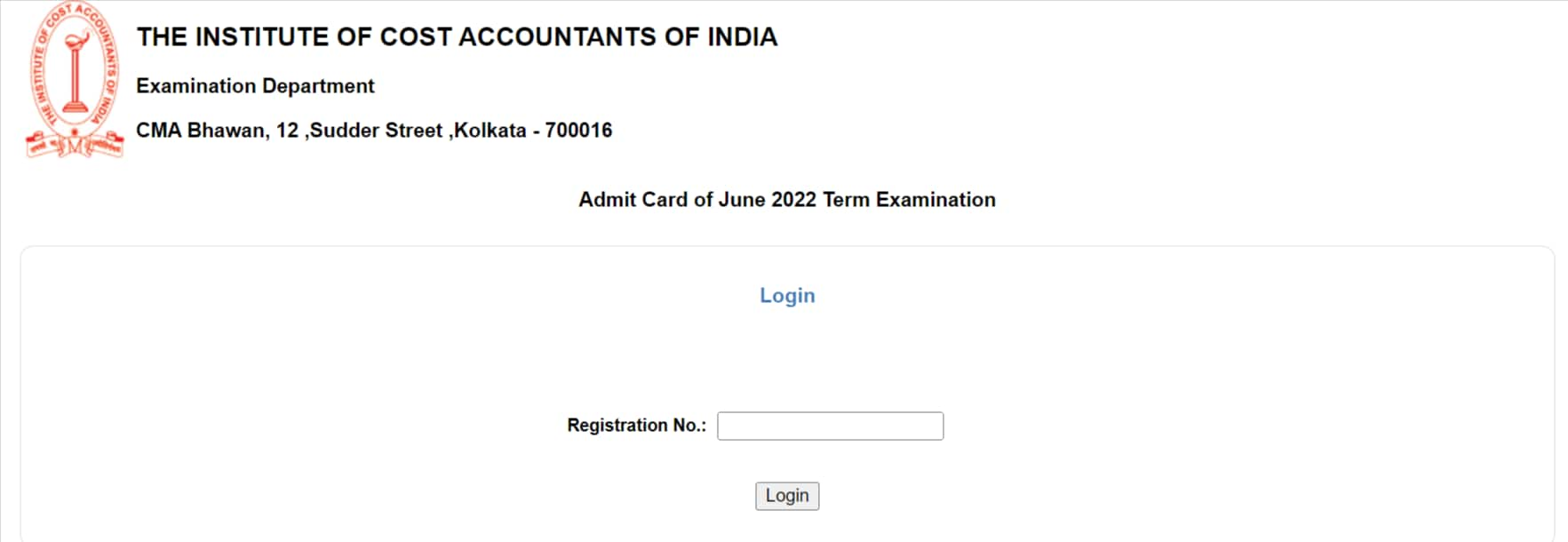IIC Lakshya CA Course
Embrace the Esteemed Power of the Ultimate Signature
The Institute of Cost and Management Accountants of India (ICMAI) will issue the CMA Final June 2026 admit card in online mode tentatively in the last week of May 2026. The CMA Final hall ticket June 2026 will be available for download from the official website - icmai.in. Candidates must log in with their registration ID and password to download the CMA final admit card. The institute will conduct the CMA Final exam from 10 AM to 1 PM, which is expected to be held in the second week of June 2026.
The CMA Final exam is a mandatory document for appearing in the admit card as it informs the candidates about the exam centre name, address, exam timings, and instructions. The institute will not send any physical copies of the CMA Final June admit card 2026 to the students.

| Event | Date |
|---|---|
Release of CMA final admit card | Last week of May 2026 |
| CMA Final exam dates | Second week of June 2026 |
From the following steps aspirants can check the download of the CMA Final Hall ticket June 2026.
Step 1: Aspirants can visit the official website at icmai.in or examicmai.org for the direct link for the CMA admit card.
Step 2: Click on the exam tab.
Step 3: Select the admit card option.
Step 4: Choose the CMA final course from the drop-down menu.
Step 5: Aspirants need to enter the login credentials such as their CMA final registration number.

Step 6: Admit card for CMA final will be available on the screen. Download and save the CMA final admit card for future reference.
When aspirants download the admit card for CMA Final 2025, they should carefully verify all these changes, as these details are required during the main exam. The CMA Final June 2026 admit card will mention the following details.
Candidate’s registration ID
Candidate’s roll number
Exam term
The exam group
Code of exam venue
Exam venue details
Candidate’s photograph
Candidate’s signature
In case of any error in the admit card for CMA Final 2026, candidates should contact the ICMAI support authorities using the helpdesk mentioned below.
| Particulars | Details |
|---|---|
| Website | www.icmai.in |
| Contact Numbers | +91 33 40364777/22521031/1034/1035/1492 +91 33 22521602/1619/7373/7143/2204 91 33 22520141/0191 Toll-Free Number: 1800110910 / 18003450092 |
| Address | The Institute of Cost Accountants of India 12 Sudder Street, Kolkata - 700016 |
Aspirants are advised to carry the following documents to the CMA Final exam centre.
Student ID proof
CMA Final admit card
Government ID proof (Aadhar card, Voter ID, PAN card, Voter ID, Passport/Driving License)
Stationery items such as pens, pencils, scale, geometry instruments etc.
Calculators
Mathematical tables if the syllabus requires it
ICMAI conducts the CMA exam for CMA courses at various test centres located across India as well as overseas. Candidates will have to select the cities for CMA test centres while filling up the application form of CMA. Aspirants filling out the application form can opt for their choice of test centres from the available cities for CMA In India, there are more than 95 cities wherein the CMA test centres are located in India along with three test centres abroad. Detailed information about the CMA exam centre will be mentioned in the aspirant's admit card.
Frequently Asked Questions (FAQs)
Aspirants need to use their login credentials such as the - registration number to download the CMA Final hall ticket 2026.
No, the CMA final 2026 admit card cannot be requested in offline mode, it can only be downloaded in online mode from the official website of ICMAI website.
The important details mentioned in the CMA Final hall ticket 2026 include candidate’s name, roll number, exam venue, date of birth etc.
Yes, you can print and download the CMA Final admit card from the official website link.
You can download CMA Final admit card online, by logging into the ICMAI registration portal.
On Question asked by student community
Hi,
Yes the final CMA syllabus is expected to change a little for the June 2022 session. The syllabus is updated every 5 years although the changes are not very drastic. As the years go by, some chapters become obsolete and some new chapters need to be include. Thus the
Asia’s only university to be awarded the highest accreditation by WASC, USA and by the Quality Assurance Agency for Higher Education (QAA), UK
NAAC A++ Accredited | Ranked #11 by NIRF
Among top 100 Universities Globally in the Times Higher Education (THE) Interdisciplinary Science Rankings 2026
MSc Finance and MSc International Management Admissions 2026 Now Open | Ranked Among the Top 100 Universities in the World by QS World University Rankings 2025 | Early Round 2 Applications Deadline: 29th Jan’26
Achieve gold standard in accounting & get recognized globally
Highest CTC 58 LPA | Avg CTC 11.35 LPA| 150+ Recruiters